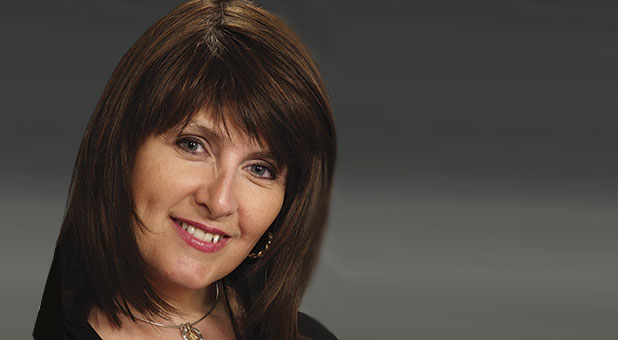Just as early American missionaries were Gentiles with a heart for God’s chosen people, so too is Daniah Greenberg, president of the Messianic Jewish Family Bible Project that published the first Messianic translation of the New Testament, committed to the people of Israel—first because, in 1989, she married a “nice Jewish boy”; and second because, as the mother of three children, she now considers herself “a mother of Israel.”
Greenberg, who grew up loving Jesus, says her faith went through bumps and challenges as she got older. After a conversion experience in college, which happened in a single visit to a Baptist church, she says she finally understood the gospel.
Then, when she married Mark Greenberg, she discovered the Lord had more plans for their life.
“I got involved in the Messianic community the first year we were married, when my daughter was born,” Daniah Greenberg recalls. “We had met a Messianic rabbi, and I wasn’t attached to a congregation.”
That rabbi was none other than Jonathan Bernis of Jewish Voice Ministries International, whom Greenberg says invited them into a journey of studying the Scriptures and Messianic prophecies. When Bernis asked a simple but profound question—Why do we believe the Bible?—Greenberg says she was off and running toward the calling that has since been placed upon her life to make the Scriptures more widely available to a Jewish audience.
“I started studying why we believe the Bible is real,” she says, reflecting on her response to that burning question. “We know that 300 versions of Socrates’ works exist, but thousands of pieces of physical evidence exist that the Bible is true.”
And—so goes the implication—no one doubts that Socrates existed.
It was a moment for Greenberg that cemented the Bible in reality, and it led to the monumental work she makes of her life today. What began as a translation effort for a children’s Bible turned into the work of a family Bible, as well as a translation of the Bible that utilizes Hebrew sentence structure, Messiah Yeshua in place of Jesus Christ, faith as a verb instead of a noun, and shalom in place of peace.
Today, the Tree of Life translation is used in synagogues around the world. —Jim Fletcher












